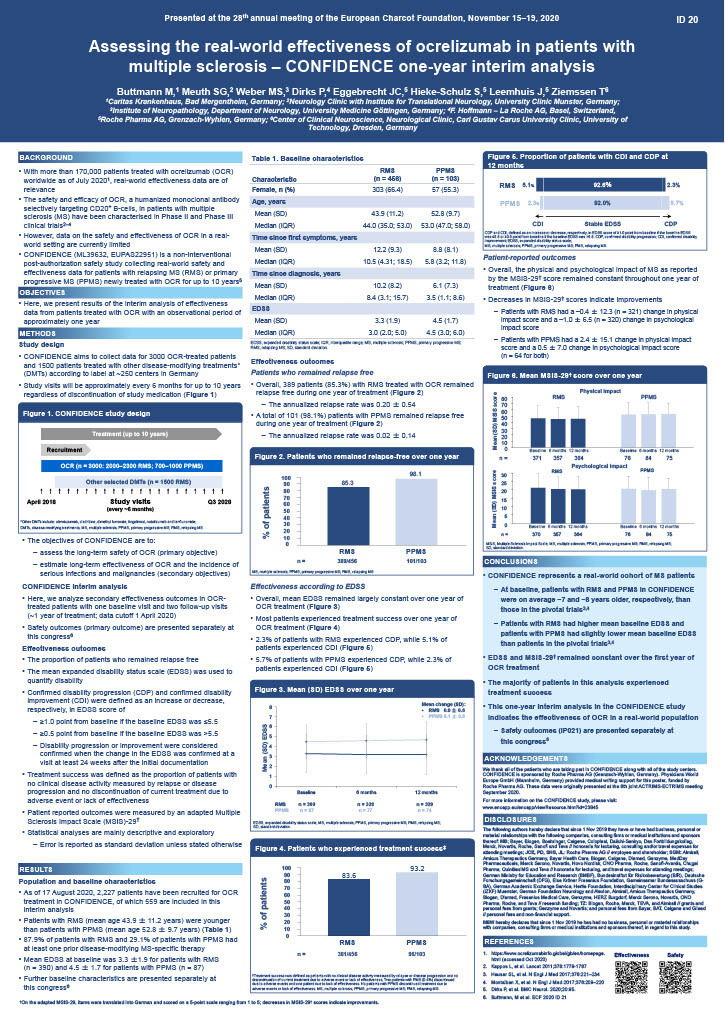Assessing the real-world effectiveness of ocrelizumab in patients with multiple sclerosis – CONFIDENCE one-year interim analysis
Abstract
Background:
Multiple sclerosis (MS) is a chronic inflammatory neurological disease requiring life-long treatment. The humanized antibody ocrelizumab selectively targets CD20+ B cells and is efficacious for the treatment of relapsing MS (RMS) and primary progressive MS (PPMS).
Objectives:
CONFIDENCE (ML39632, EUPAS22951) evaluates the safety and effectiveness of ocrelizumab in patients with RMS and PPMS in a real-world setting. We present a one-year analysis of effectiveness data.
Methods:
This non-interventional study in patients with RMS or PPMS newly treated with ocrelizumab or other selected disease modifying therapies (DMTs) will collect data for 3,000 ocrelizumab-treated patients and 1,500 patients treated with other DMTs according to label at ~250 centers in Germany for up to 10 years. Statistical analyses are mainly descriptive and exploratory. First-year effectiveness outcomes were analyzed for patients treated with ocrelizumab, including treatment success (no relapse, progression or treatment discontinuation due to an AE) and change in Expanded Disability Status Scale (EDSS) from baseline.
Results:
As of 30 June 2020, 2,129 patients have been recruited for ocrelizumab treatment. The one-year interim analysis includes data from 559 patients newly treated with ocrelizumab. Of these patients, ~82% had RMS and ~18% had PPMS. Mean (standard deviation [SD]) baseline EDSS was 3.3 (1.9) and 4.5 (1.7) for patients with RMS and PPMS, respectively.
Preliminary data show that 64% of patients were female (66% RMS; 55% PPMS). Over a oneyear period, 83.6% of RMS and 93.2% of PPMS patients experienced treatment success. About 85.3% of patients with RMS experienced no relapses. The mean (SD) change in EDSS from baseline after one year of treatment was 0.0 (0.6) for patients with RMS and 0.1 (0.6) for patients with PPMS.
Conclusions:
This analysis of one-year interim data in the CONFIDENCE study (previously presented at ECTRIMS 2020) shows the effectiveness of ocrelizumab in a real-world setting.

